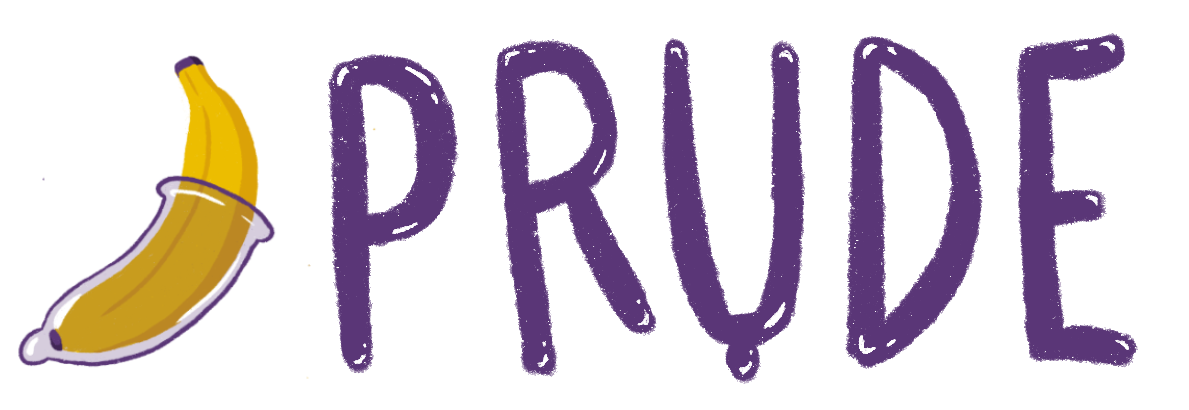Share This Article
To me, sex is the least interesting thing in the world. Growing up, I could never understand why everyone was so obsessed with a basic reproductive activity.
Sex is everywhere in mainstream media. I grew up watching popular rom-coms like Friends and How I Met Your Mother, that both feature one major character (Joey and Barney, respectively) whose whole personality revolves around having a lot of sex. More recently, Netflix’s Sex Education was watched by 40 million subscribers in its first month. Meanwhile, I either avoid films and shows that heavily feature sex, or skip all the sex scenes: I fast-forwarded most of Bridgerton for this reason, which made the plot really hard to follow.
I didn’t have any romantic relationships until I was 18, so I didn’t have anyone to explore my sexuality with when I was growing up. I would always wonder: what’s wrong with me? I would ask myself, am I sexually repressed somehow? Maybe I experienced a traumatic event in my childhood associated with sex, without knowing it? Or maybe I’m just a prude?
But it turns out I’m not a prude, I’m asexual. Asexuality, also known as ace, is deeply misunderstood, and acceptance of it as a sexual orientation is still new. Last year marked the first-ever International Asexuality Day (IAD) on 9 April. Now that the second IAD is coming up, I’m sharing my story in the hope of dispelling common misconceptions about being ace.
I realised I was asexual during Ace Week last year, a week aimed at increasing asexuality visibility. While waiting for the tube, I was listening to OSPod, an educational podcast about mythology, literature and history. In the episode, one of the hosts, Blue – they use colour pseudonyms to maintain anonymity – who recently married his long-term girlfriend, came out as asexual. I was shocked to learn that people in committed romantic relationships could be asexual, which meant that I could be too!
He spoke about how he never understood why sex features so prominently in music. “Those 80s people were way too horny!” he exclaimed, and said that the way he felt towards attractive humans was the same way he felt towards pieces of art, without sexual desire.
That single podcast episode made me feel validated in a way that I’m convinced straight people can never relate to. I had always thought that no one else was like me, that something must have been wrong with me. Hearing that a random podcaster was having the exact same experience was all it took to not feel so wrong anymore, and this is why asexuality awareness matters.
Research from LGBTQIA+ charity The Trevor Project in 2020 showed that asexual youth aged 13-24 suffer from higher rates of depression and anxiety compared to the wider population of young queer people. They also concluded that asexual young people are often overlooked, and that “efforts must be made to include asexual youth in LGBTQ youth outreach”.
So what is asexuality? Dr Myeshia Price, a Senior Research Scientist for The Trevor Project, explains: “Asexuality is an umbrella term and exists on a spectrum. Asexual people may have little interest in having sex, even though most desire emotionally intimate relationships. Within the ace community, there are many ways for people to label and express the nuances of their overall sexual or romantic orientation.”
As Dr Price explains, some ace people never feel sexual attraction, while others have the desire to have sex occasionally. People who are grey-asexual feel sexual attraction less than average, and people who are demisexual, like me, can only feel sexual attraction when they form a strong emotional connection with someone.
To put it simply: some ace people have sex, others don’t. Many ace people have a libido, which is separate from sexual attraction. This means that ace people often feel arousal without having a desire to have sex.
Non-asexual people always struggle to understand the separation between having a sex drive and wanting to have sex with people, and this is the aspect of asexuality that I find hardest to explain.
In practical terms, for me, there’s no difference between sex and masturbation. I view libido as a purely biological factor, like hunger or thirst, and it makes no difference to me whether I satisfy it by having sex or masturbating.
One question I’m often asked is: “What does your boyfriend, who is not asexual, think?” The simple answer is: my boyfriend is cool with it. I’m a demisexual, so I feel sexual attraction towards my boyfriend. Our relationship isn’t very different to a heterosexual couple. Though, after I came out as asexual certain things about our relationship made much more sense, like how he finds people sexy while I just think about whether people have mathematically symmetrical faces.
“But he must be pleased that you don’t feel attracted to others?” A heterosexual person might ask. However, though asexual people might not feel the desire to have sex, they do feel romantic attraction. Asexuality is often conflated with being aromantic, which describes someone who has no desire for romantic relationships, but they are two different things.
Asexual people face many other prejudices. I spoke to Amber*, a founding member and organiser of IAD about challenges ace people face. She explained that in mainstream media “asexuality often gets equated with the non-human”, or is represented as “trauma or something medical”.
Before I really understood what asexuality was, I am ashamed to say that I imagined ace people as resembling science fiction robots. Like the AI Ava in Ex Machina, ace people were human in every other way, but because they didn’t care about sex, to my mind then they must have been non-human.
I also frequently wondered if I was mentally damaged in some way. But asexuality, just like all other LGBTQIA+ identities, isn’t a mental illness, and it’s not brought on by trauma.
Another common misconception is that ace people simply need to have sex to realise what they’re missing. Amber explains: “It’s stuff that a lot of other LGBT identities experience. So for instance, people saying that it’s just a phase, or you just need to have sex with someone, and then you’re cured.”
But just like gay men can’t be “cured” by having sex with women, having sex has not stopped me from being ace.
When I tried to educate myself about asexuality, I realised how many prejudices I had about it. When I let these go, I could finally embrace asexuality as part of my identity. Realising that I’m asexual means that I’ve stopped feeling like I was born wrong, like I had to fix myself. It’s okay for me to find sex boring. After all, there are enough people who watch Sex Education – I can watch something else.
*Last names have been omitted for sources who wished to remain anonymous.
Enjoyed this article? Read more here: Being your partner’s first

Illustration by Isabel Abrams



1 Comment